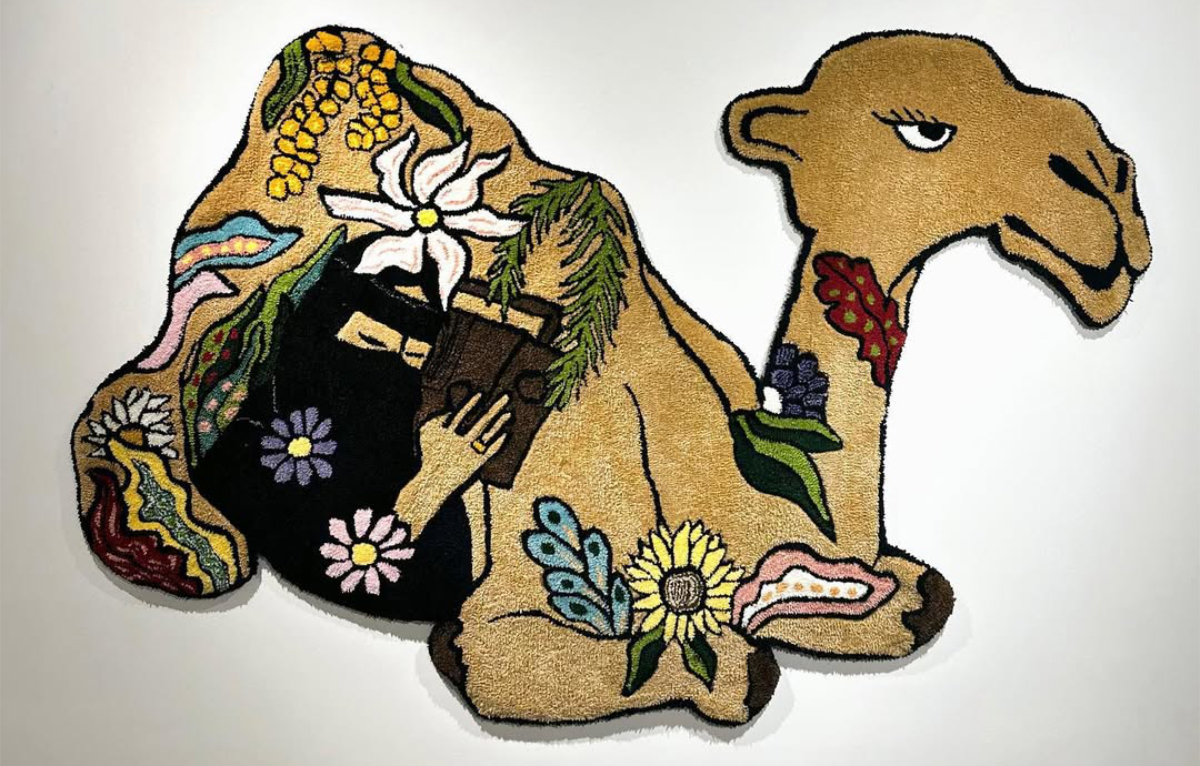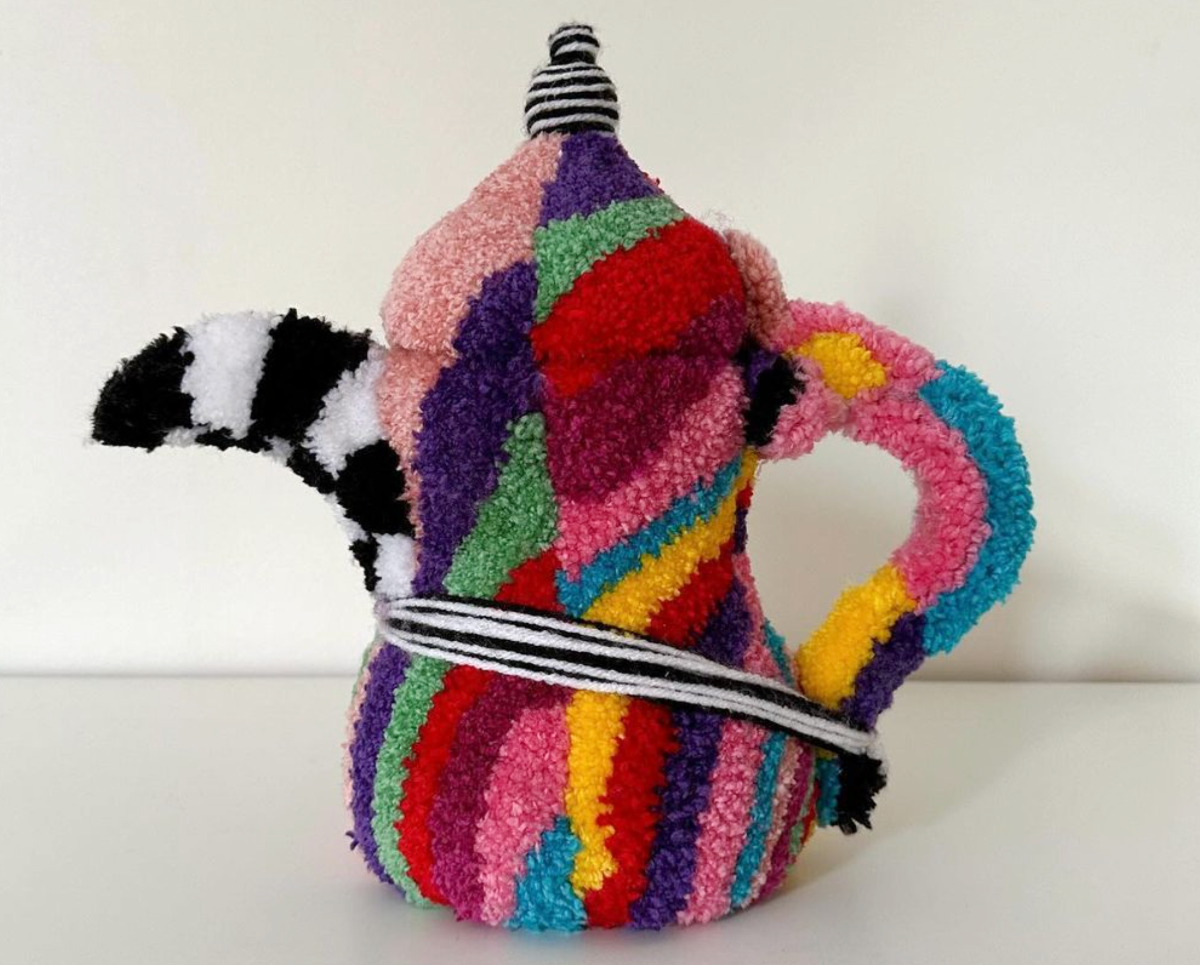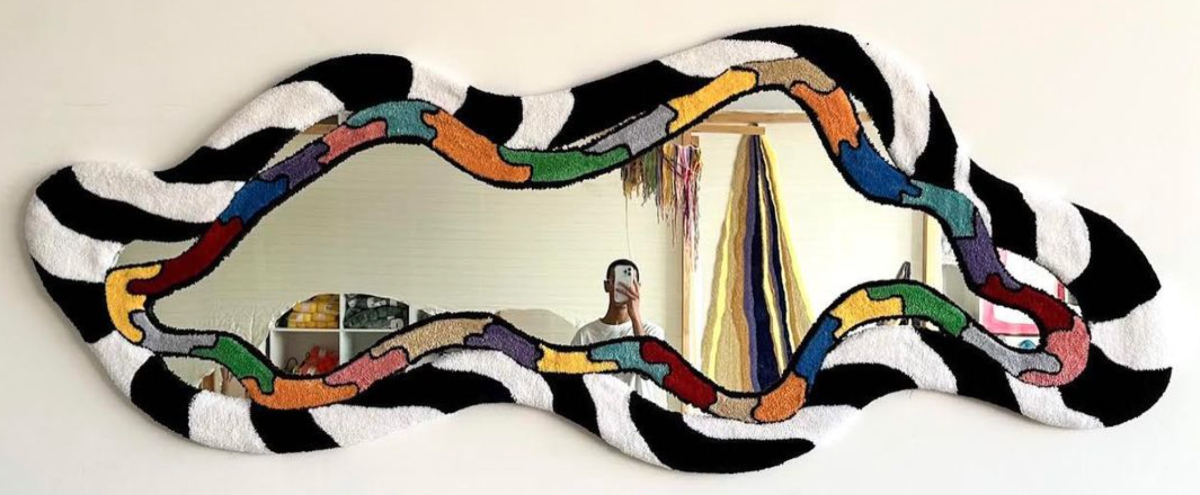JEDDAH: Iran manufactured the ballistic missile fired by Yemen’s Houthi militia toward the Saudi capital and remnants of it bore “Iranian markings,” the top US Air Force official in the Middle East said on Friday.
“There have been Iranian markings on those missiles... To me, that connects the dots to Iran,” said Lt. Gen. Jeffrey L. Harrigian, who oversees the Air Force’s Central Command in Qatar.
“How they got it there is probably something that will continue to be investigated over time,” he said. “What has been demonstrated based on the findings of that missile is that it had Iranian markings on it. That in itself provides evidence of where it came from.”
The missile was shot down on Nov. 4 near Riyadh’s international airport. Saudi investigators examining the remains of the rocket found evidence proving “the role of the Iranian regime in manufacturing them.”
French President Emmanuel Macron also described the missile as “obviously” Iranian.
He said that he was “very concerned” by Iran’s ballistic missile program, and raised the prospect of possible sanctions.
“There are extremely strong concerns about Iran. There are negotiations we need to start on Iran’s ballistic missiles,” he said.
Nikki Haley, the US ambassador to the UN, said in a statement on Tuesday that a missile launch in July involved an Iranian Qiam-1, a liquid-fueled, short-range Scud missile variant.
Iran used a Qiam-1 in combat for the first time in June when it targeted Daesh militants in Syria over militant attacks in Tehran.
US warships have also been attacked by the Houthis. In October 2016, the US Navy said that the USS Mason came under fire from two missiles launched from Yemen. Neither reached the warship, though the US retaliated with Tomahawk cruise missile strikes on three coastal radar sites in Houthi-controlled territory on Yemen’s Red Sea coast.
At the time, authorities said the missiles used in that attack were Silkworm missile variants, a type of coastal defense cruise missile that Iran has been known to use.
Dr. Hamdan Al-Shehri, a Riyadh-based Saudi political analyst and international relations scholar, said that Lt. Gen. Harrigian’s comments supported Saudi Arabia’s case against Iran.
“This confirms what Saudi Arabia has stated,” he told Arab News. “This conclusively proves Iranian intervention in the region. Iran is using its deadly arsenal through the Houthis and Hezbollah.”
He said the statement was “a big indication” that the US shares the Saudi concern and was ready to back Saudi steps against Iran.
“Iran is exposed. The missile attack on Riyadh will not go unpunished. Saudi Arabia will take serious measures against Iran,” he said.
Harvard scholar and Iranian affairs expert Majid Rafizadeh said Lt. Gen. Harrigian’s statement is significant because a high-level official is confirming what many experts and policy analysts have said, which is that the Iranian regime was behind the attack against Saudi Arabia.
“It re-confirms the Iranian regime’s continuing belligerent behavior in the region, its pursuit for regional hegemony and its deep antagonism toward Saudi Arabia,” Rafizadeh told Arab News. “It shows that Saudi Arabia has never made allegations against the Iranian regime without proof and evidence.”
According to Rafizadeh, the Iranian regime’s involvement and cooperation with the Houthis “is much deeper than what the public generally knows.”
He said Tehran provides sophisticated training for conducting terror attacks, and that it arms and funds the Houthis on a much higher level.
Oubai Shahbandar, a Syrian-American analyst and fellow at the New America Foundation’s International Security Program, said: “The Iranian Revolutionary Guards have been caught red-handed.
“For any skeptic that still denies the Houthis are a direct proxy of the Iranian government, keep in mind that the transfer and launch of such a sophisticated missile against the Saudi capital would not have been possible without the approval at the highest levels in Tehran.
“What this means is that there are likely Iranian Revolutionary guard officers or possibly Lebanese Hezbollah operatives on the ground embedded with the Houthi militias to help facilitate the movement of these missiles and the targeting process.”
Shahbandar wondered what the reaction would be if Riyadh had authorized a missile strike against Tehran.
“There would have been international uproar. Iran’s signature was literally discovered on the missile itself. It’s a dangerous escalation and it is important to publicly call out Iran for its direct involvement in the missile strike without any equivocation,” Shahbandar said.
Missile fired at Saudi capital was Iranian: US official
Missile fired at Saudi capital was Iranian: US official

KSrelief continues food aid projects globally

RIYADH: KSrelief, Saudi Arabia’s aid agency, continues to provide food assistance to vulnerable populations in several countries.
KSrelief distributed 500 cartons of dates on Thursday in the Red Sea State of Sudan, benefiting 5,162 individuals from displaced families.
The agency also handed out 175,000 bags of bread to needy families, including Syrians, Palestinians and members of the host community in northern Lebanon.
This initiative benefited 125,000 individuals.
In Pakistan, KSrelief has distributed 2,300 food boxes in flood-affected areas of Punjab and Khyber Pakhtunkhwa provinces, benefiting 14,227 individuals.
In Syria’s earthquake-hit regions, KSrelief has distributed 747 food parcels and 747 hygiene kits to affected families in Al-Dana of the Idlib Governorate.
The aid, which benefited 4,482 individuals, is part of a continuing project that supports people affected by the recent earthquake in northern Syria.
Border guards thwart drug smuggling attempts

RIYADH: Saudi border guards have foiled several attempts to smuggle illegal drugs into the country, state news agency SPA reported.
Border personnel seized 1.3 tonnes of hashish, 1,388,622 narcotic pills and 136 tonnes of qat in separate operations in Jazan, Aseer and Najran and also arrested 959 Ethiopians, 849 Yemenis, three Somalis and Eritreans and 12 nationals suspected of involvement in the smuggling attempt.
Security authorities urge the public to report any information related to drug smuggling or selling by calling 911 in Makkah, Riyadh, and the Eastern regions, and 999 in other regions of the Kingdom.
People may also contact the General Directorate of Narcotics Control at 995 or via email: [email protected]. All reports will be treated with strict confidentiality.
Young Saudi rug makers weave kaleidoscope of dreams

- Bassam Al-Khalifi, Saud Al-Rasheed master the art of tufting rugs
RIYADH: In the wake of the pandemic Bassam Al-Khalifi and Saud Al-Rasheed transformed their isolation into creativity, leading to the birth of Ghazlah Studio — a hub for unique, hand-tufted rugs.
The Saudi men’s story is not just about artistry but a testament to how challenging times can inspire innovation and passion.
Al-Khalifi’s journey began when he sought to decorate his room. Frustrated by the lack of appealing rugs in the market, he decided to create his own.

“I wanted something different, so I ordered the equipment and dedicated a year to learning how to tuft,” he told Arab News. What started as a personal project quickly evolved into a larger vision.
Initially, neither Al-Khalifi, an artist and designer, nor Al-Rasheed, an avid art collector, had any experience in weaving. They faced a steep learning curve but were undeterred.
“We took six months to learn how to conceive designs, source materials, and weave the rugs,” Al-Khalifi explained.
HIGHLIGHTS
• The journey of Ghazlah Studio began when Bassam Al-Khalifi, frustrated by the lack of appealing rugs in the market, decided to create his own.
• Their debut collection titled ‘Color as a Scene’ evokes a range of emotions, reflecting the complex sentiments many experienced during the pandemic.
They experimented with various techniques, ultimately settling on a “cut and loop” method using 100 percent acrylic yarn. This approach stands in contrast to traditional Arabian carpet-making methods which often utilize wool and time-honored designs.

Their learning process was filled with challenges, but their determination pushed them forward.
Al-Khalifi pored over tutorials, consulted with experts, and practiced tirelessly. Al-Rasheed, with his keen eye for aesthetics, contributed by curating color palettes and design concepts.
What started as a hobby soon blossomed into a commercial venture. With their rugs gaining traction, Al-Khalifi and Al-Rasheed launched Ghazlah, featuring a debut collection titled “Color as a Scene.”

The collection evokes a range of emotions, reflecting the complex sentiments many experienced during the pandemic. “I wanted to splash all these emotions on the piece itself,” Al-Khalifi said. The vibrant tapestries of feelings capture the essence of joy, nostalgia, and hope.
The vibrance of their work makes a statement piece in any room. Each piece is unique, with some featuring Saudi themes that enhance their significance and appeal. The artists also draw inspiration from their heritage, incorporating traditional motifs and modern designs, creating a fusion that resonates with a broad audience.
In Ghazlah’s Riyadh workshop, the atmosphere is filled with creativity and energy. The walls are lined with neatly organized shelves filled with spools of yarn in every imaginable color. There are some of Al-Khalifi’s paintings and rugs still in progress, showcasing their journey.

Al-Rasheed gestured around the space, saying: “This place is full of rugs that we made but decided not to sell. Why? Because we love them. I’m trying to push Al-Khalifi to sell them, but he won’t.”
Ghazlah Studio has made a notable impact in Riyadh, showcasing creations in three galleries. Their work has garnered attention not just locally but also from international platforms, leading to collaborations with major brands such as Vogue and Sephora.
These partnerships have elevated their profile and allowed them to reach a wider audience with which they can share their artistry and craftsmanship.
The duo’s success can also be attributed to their innovative marketing strategies. They leverage social media to share their creative process, engage with customers, and build a community around their brand.
By showcasing behind-the-scenes footage, they invite their audience into their world, allowing them to witness the transformation of raw materials into stunning art pieces.
As they continue to grow, Al-Khalifi and Al-Rasheed are committed to exploring new design possibilities, as well as looking into creating home decor items. They plan to expand their collections, experimenting with different textures, materials, and techniques.
From a simple idea born during quarantine to a noteworthy business, Ghazlah Studio continues to make waves in the art scene, proving that even in isolation, inspiration can thrive.
As they weave their stories into every rug, Al-Khalifi and Al-Rasheed invite us all to find beauty and meaning in our own creative pursuits.
Hail governor inaugurates Middle East’s largest salmon production center

- The 10,000-square-meter facility features the latest marine technology
HAIL: Prince Abdulaziz bin Saad bin Abdulaziz, the governor of Hail, inaugurated the Excellence Center for Salmon Production on Saturday, the largest facility of its kind in the Middle East.
A collaboration between the Ministry of Environment, Water, and Agriculture and King Abdulaziz University, the center aims to produce 100,000 tons of salmon annually, bolstering Saudi Arabia’s food security and aquaculture sector, the Saudi Press Agency reported.
The 10,000-square-meter facility features the latest marine technology, including recirculating aquaculture systems and aquaponics units, which integrate fish and vegetable production.
It is designed to reduce the Kingdom’s reliance on salmon imports, currently at 23,000 tons per year.
Prince Abdulaziz hailed the project as a cornerstone of Vision 2030, promoting sustainable development and economic diversification, while attending officials highlighted its potential to enhance innovation, create jobs, and serve as a model for sustainable aquaculture in the region, SPA added.
Islamic minister highlights Saudi Arabia’s role in promoting peace

- European guests praise Saudi Arabia’s hospitality, cultural outreach efforts
JEDDAH: Saudi Arabia’s Ministry of Islamic Affairs hosted a cultural event for the second group of Guests of the Custodian of the Two Holy Mosques’ Program for Umrah and Visit, featuring various cultural and entertainment activities.
The group comprised 250 pilgrims from 14 European countries, the Saudi Press Agency reported.

They expressed their gratitude to the leadership and the ministry for hosting them, allowing them to perform Umrah rituals and visit historic sites in Madinah and Makkah.
Minister of Islamic Affairs Sheikh Abdullatif Al-Asheikh said Saudi Arabia, under the leadership of King Salman and Crown Prince Mohammed bin Salman, was committed to being a beacon of goodness and moderation.
HIGHLIGHT
The minister also highlighted the Kingdom’s commitment to providing humanitarian aid to those in need around the world, in line with Islam’s core values of promoting compassion and support.
During a reception for the guests, he said the Kingdom would continue to serve Islam and Muslims, and promote tolerance, coexistence and understanding worldwide.
Al-Asheikh, who is also the general supervisor of the program, met the guests, conveyed the greetings of the Saudi leadership and along with members of the program’s working committees reviewed the services provided and received a briefing on their work.
Under its leadership, the Kingdom strove to offer top-tier services to the visitors of the Two Holy Mosques from around the world, he said.
The guests commended the Kingdom on its efforts to promote Islam’s message of tolerance and foster appreciation for its historical and spiritual legacy. They also praised the new projects and expansions at the holy mosques and sites, which align with Saudi Vision 2030.
Al-Khamar Al-Baqari, head of imams in the Netherlands, expressed his gratitude to Saudi Arabia, its government and its people for their hospitality.
Sheikh Ali Al-Zughaibi, the program’s executive director, said that since its launch in 2014 it had provided the opportunity for 4,500 men and women from around the world to perform Umrah and visit the Prophet’s Mosque.
Al-Asheikh also highlighted the Kingdom’s unwavering commitment to providing humanitarian aid to those in need around the world, in line with Islam’s core values of promoting compassion and support.




















